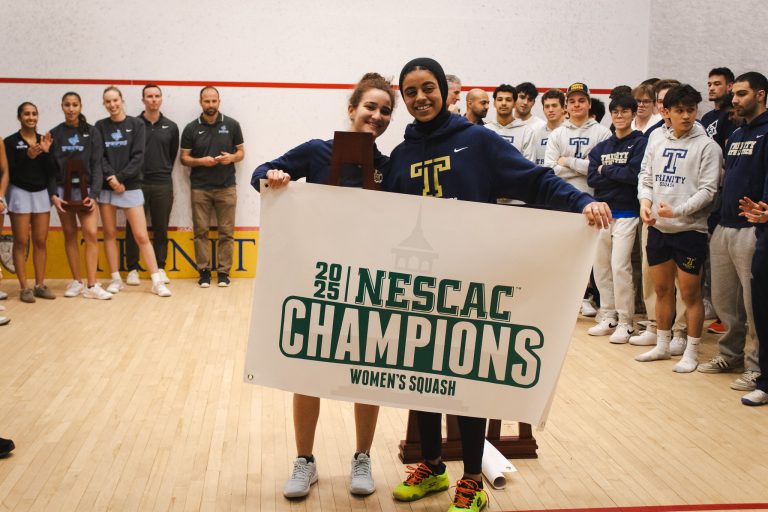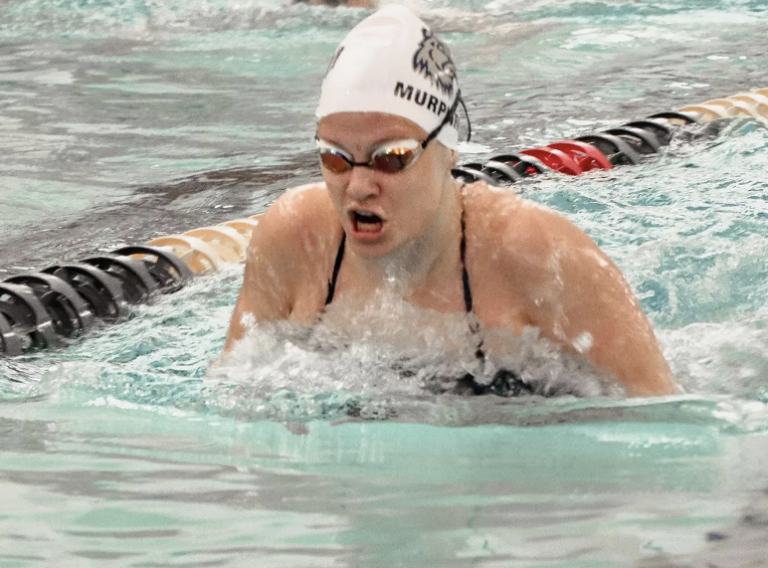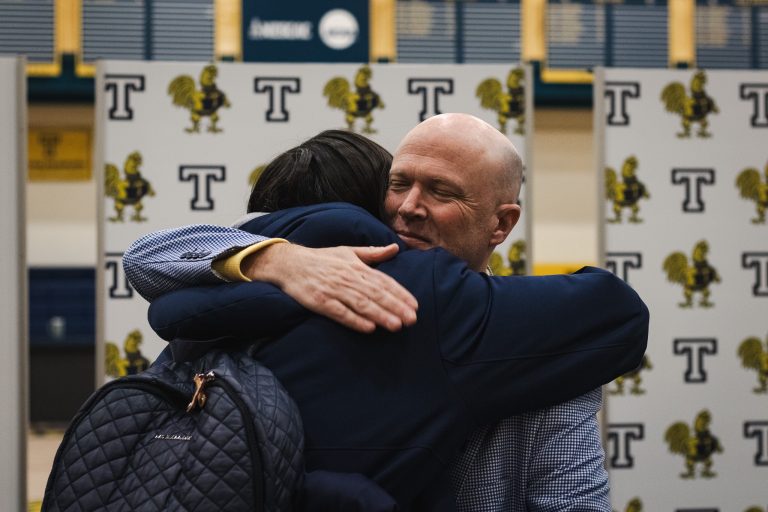Ashley McDermott ’26
Sports Editor
The various communities on campus intersect through the many clubs, teams, and academic environments. Each student brings a unique story and has a unique identity that should be recognized and supported. The Trinity College Student Handbook states “by eliminating discrimination and embracing diversity, equity and inclusion, we foster an environment of trust and mutual respect where everyone who lives, studies and works at Trinity can meaningfully engage, connect and transform themselves and the worlds around them.” For queer athletes on campus, finding a balance between their identities and their team can be challenging. Particularly when considering stereotypes and preexisting prejudices. The Tripod sent out a survey to sports teams at Trinity College to gather queer athletes’ personal opinions on their programs and their experiences.
The responses were collected anonymously.
33.3% of participants in survey somewhat agree with the statement that Trinity College fosters an environment of equal recognition between men and women’s teams. Some recognition opportunities come from social media posts. The @bantamsports instagram page features shots for each of the in season teams, as well as game recaps. The men’s teams, however, have noticeably more film edits that are shared online. 16.7% of responses strongly disagree with the statement above. Two Thirds of the responses agree that a collegiate level of athletics has offered a healthier dynamic regarding gender and sexuality inclusion and acceptance. Being a diverse institution, Trinity College has committed to connecting and upholding equality amongst students. The principle, according to athletes, is carried over into practices, games and the overall lifestyle of a collegiate athlete. Exactly half of participants found that the stereotypes around being a queer athlete are still being applied in a negative manner. Some of the stereotypes mentioned in responses are that “players of a certain sport are immediately profiled as queer,” or “members of a specific team on campus prey on their teammates.” Other stereotypes include female sports being easier than their male counterpart teams, or that women’s sports are “just overall not entertaining,” with a lot less fan attendance to games. When asked about experiencing homophobia or sexism within the past three months, just over half reported that they have. Instances can appear from outside offenders, or even within the locker room, where one athlete reported to the team enduring a rumor that the team looks at each other in a sexual manner while in their private locker rooms. This, again, reflects the negative stereotypes associated with being a queer athlete and the continuous perpetuation of those harmful ideas. Three quarters of the athletes requested for more work to be done within the athlete program to address such inequalities. The changes and provisions requested by the athletes included promoting kindness and equality in a way that does not embarrass or put queer athletes on the spot. While it may seem like a viable solution to emphasize our queer athletes, it may be uncomfortable for those individuals. It can be counterintuitive to expose different queer athletes when they simply want to be normalized. Hosting inclusion games, and providing education on how to support fellow queer athletes, not to out them in any way was also mentioned in survey responses.
Queer identifying athletes at Trinity College deserve recognition and support from all facets of campus. A great way to harness this recognition would be to install an LGBTQ+ athletic coalition. This could be a group that represents all athletes that identify under this term, and could find ways to connect with each other and with everyone on campus. They can better promote Inclusion games, and be able to share their stories on their own terms. The Athletes of Color Coalition is a great example of a space designated to a specific group of athletes, in this case athletes of colors. Some of their successful initiatives and connecting with other NESCACs to discuss and collaborate on plans for the semester. They also host events open to all on campus, such as the Clash of the Bants, a game night with food, music, games, and competitions. The idea behind it is to promote the ACC as well as the SAAC, or the Student Athletic Advisory Committee.
The Queer Resource Center on campus is another resource to guide and facilitate meaningful conversations and initiatives to better promote awareness and support. Trinity College’s campus as a whole participates in the National Campus Climate Assessment for LGBTQ+ Life. Trinity received a five out of five star rating. Beyond this, the school offers a mandatory LGBTQ+ Foundations and Allyship Moodle course that must be completed by members of sports teams and Greek life. The purpose of the course is to give members of Trinity’s campus basic knowledge and awareness on LGBTQ+ matters, as well as a solid idea of the many resources available. The training is a proper entry-level education course to aid athletes and others in finding the appropriate measures to support queer members of campus.
Overall, instating a coalition of LGBTQ+ identifying athletes would be a positive course of action to be taken to advocate for equality and queer awareness in athletics. Also, taking the time to educate oneself as well as unlearn harmful stereotypes as reported by athletes in the survey is another action to support fellow bantams. For the fans, attending each game and supporting both men and women’s teams shows support and recognition for the dedication each athlete brings. Especially showing up for Pride Themed games, to cheer on each athlete and celebrate their identities. While Trinity College has been rated highly for acceptance towards LGBTQ+ students, there is still work to do. Recognizing this and doing the necessary work to support queer athletes would uphold the principle of advocating for diversity, equity, and inclusion.





+ There are no comments
Add yours